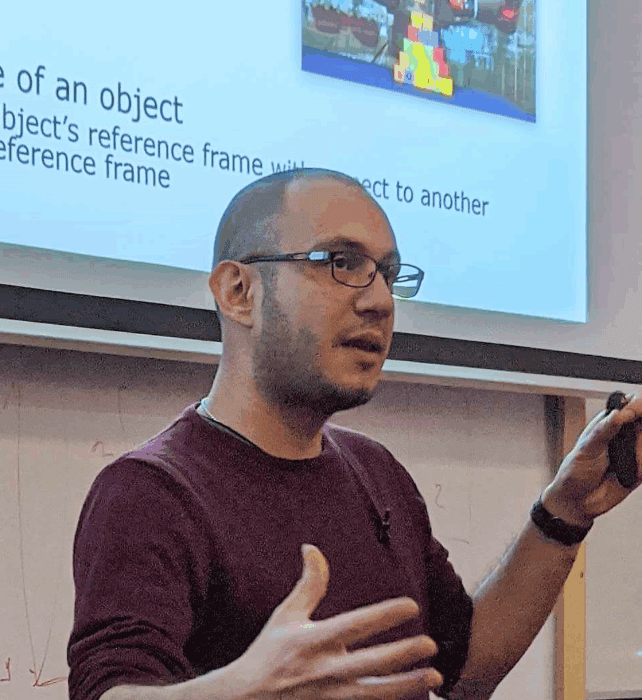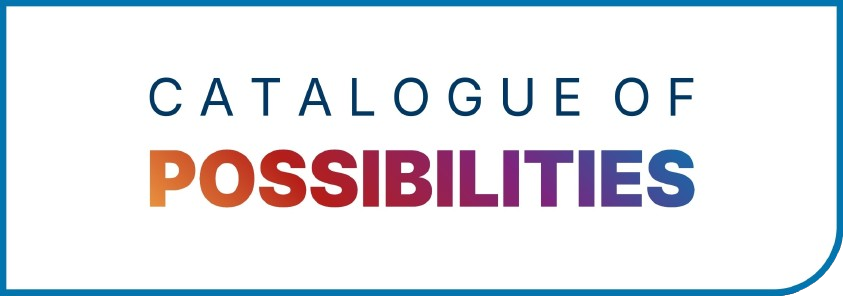Dr Gerardo Aragon Camarasa he/him

Senior Lecturer of Robotics and AI
Strategic Research Areas
My research passion lies in advancing robotics and artificial intelligence through interdisciplinary approach, bringing together robotic perception, manipulation of deformable objects, and 3D printing technologies.
In my group, we focus on solving real-world challenges by developing robotic perception capabilities to make autonomous systems “”smarter””. Lately, our projects include dexterous manipulation of flexible and deformable materials, modular robotics for creating real-world benchmarking arenas for machine learning, anomaly detection in additive manufacturing and physics-informed machine learning for renewable energies (aerfoil and turbines characterisations).
I actively seek collaborations that bridge robotic perception and machine learning via autonomous systems. I am especially interested in forming partnerships that integrate engineering, AI, and application-driven research to solve complex, multidisciplinary problems.
Potential CDT projects I would like to supervise, but not limited, could explore machine perception grounded in the physical medium, and autonomous robotic manipulation in complex, dynamic environments.
I work at the intersection of robotics, artificial intelligence, robotic perception and novel sensing technologies (in partnership with academic in Engineering). I aim to design research that not only pushes theoretical limits but also delivers practical solutions across industrial, scientific, and societal domains. In that regard, we currently have active partnerships with robotic companies (e.g. HAL robotics via a industrial PhD fellowship funded by the Royal Commission), University of Strathclyde and the National Manufacturing Institute in Scotland.
I would like to supervise projects that combine rigorous methodological development with real-world impact—projects that bring together AI, robotics, and domain-specific expertise to solve significant, complex challenges.
( As a supervisor, I aim to have open communication with my PhD and provide tailored mentorship to each student (weekly 1-hour meetings). I encourage my PhD students to pursue both fundamental research and technology transfer opportunities, equipping them for impactful careers.
I’ve graduated 8 PhD students so far (all with equal or more than 50% share). They have gone on to roles in academia (lecturer in Turkey and senior research scientist in KSIR, Kuwait), research (PDRAs here in Glasgow and Liverpool), and industry (Kyndryl).
EDI is central to how I work. I am committed to creating a research culture that values diverse perspectives. I have experience building inclusive teams and organising collaborative academic events that open doors for underrepresented groups in STEM. In my team, we have a weekly group seminar where PhD students get to practice presentation skills and a reading group where I encourage them to have a voice while reviewing papers.
My academic journey—from studying industrial robotics engineering to working in interdisciplinary research in Computing Science and Chemistry—reflects my belief that transformative innovation happens at the intersection of disciplines and not in silos. In that regard, my team is not composed of only computer scientists but come from engineering and business degrees. I am also the academic advisor for the UGRacing (https://ugracing.co.uk/) driverless division. The society works with around 30 companies in the UK to design and develop an EV autonomous racing car for the IMechE Formula Student competition. In the last competition edition, the society got 3rd place overall among 50 teams.

